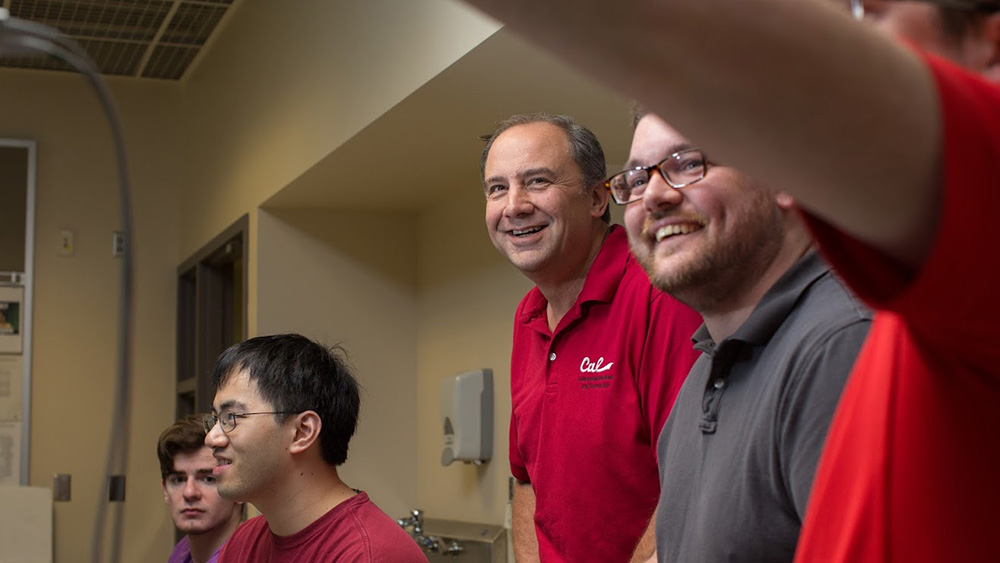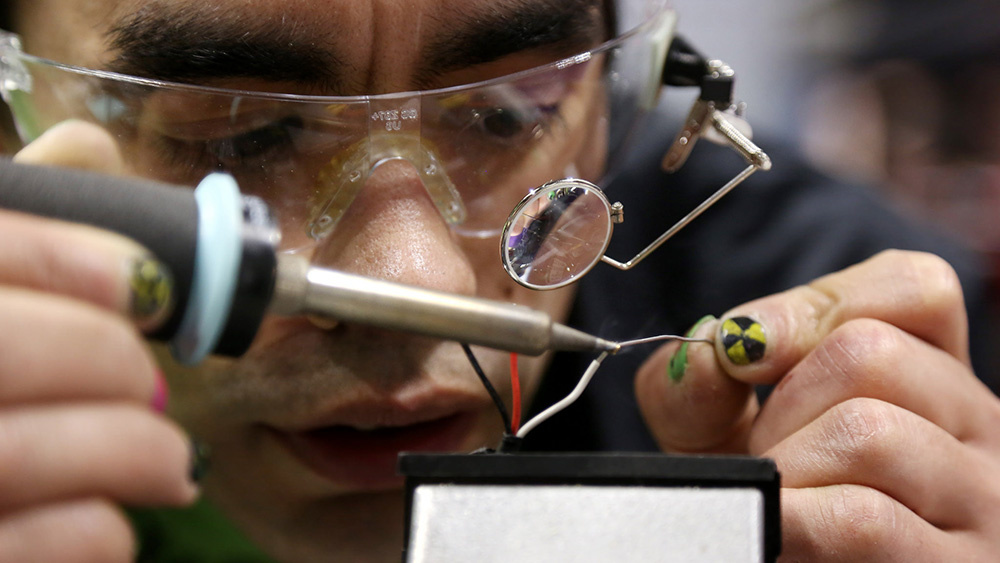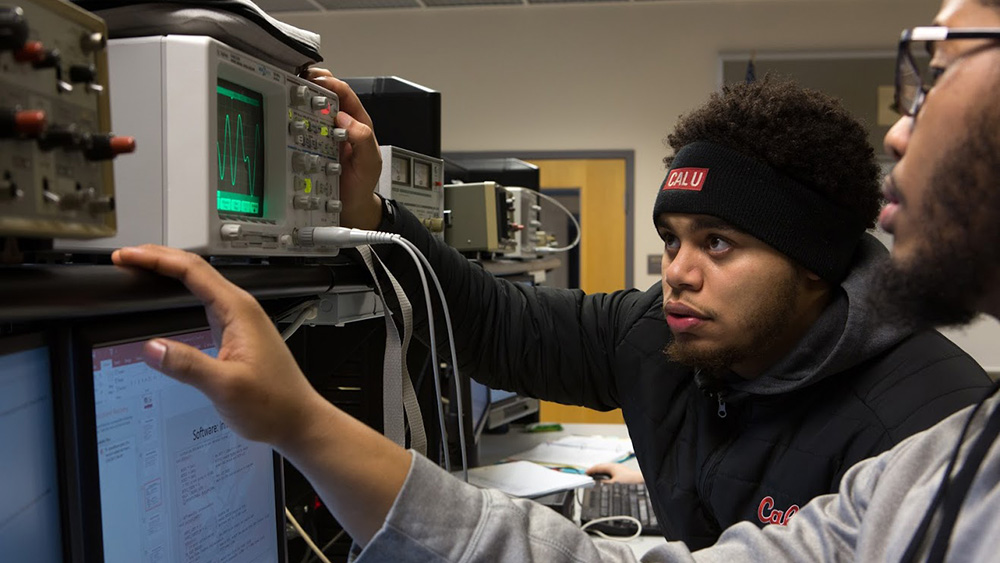Electrical Engineering Technology
Configure new systems and pave the way for the future of electronics.
PennWest California bachelor's degree program in electrical engineering technology blends theory with practical applications to develop both the broad knowledge and in-depth skills you need to design, develop, calibrate and repair electrical and electronic systems.
PennWest California's hands-on approach to electrical engineering will prepare you for a wide range of careers solving problems in electronics-related industries. Seniors and graduates of this accredited bachelor's degree program are also eligible to sit for a pre-licensing Fundamentals of Engineering (FE) exam.
PennWest California prepares you for career success.
- Learn how to assess and evaluate complex technical and nontechnical problems.
- Apply the knowledge, skills and techniques of modern tools and laboratory equipment used in electrical engineering.
- Analyze, design and implement analog and microprocessor systems.
- Use computer-based technology to solve technical problems.




